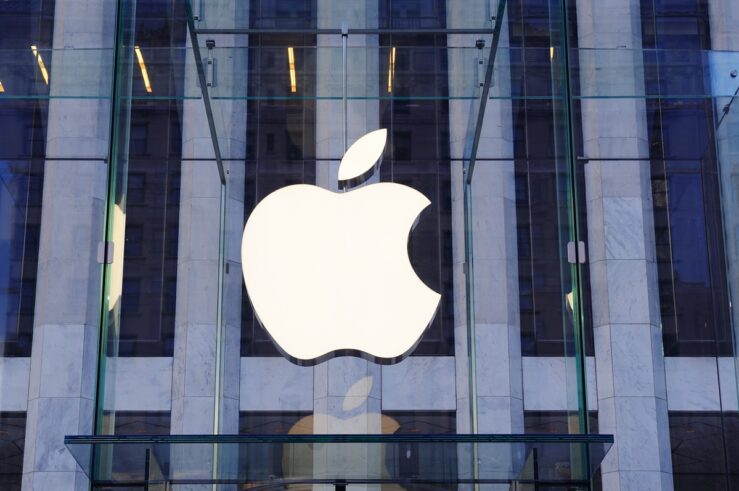Showing archive for: “Antitrust”
The Missing Element in the Google Case
Through laudable competition on the merits, Google achieved a usage share of nearly 90% in “general search services.” About a decade later, the government alleged that Google had maintained its dominant share through exclusionary practices violating Section 2 of the Sherman Antitrust Act. The case was tried in U.S. District Court in Washington, D.C. last ... The Missing Element in the Google Case
Kroger/Albertsons: Is Labor Bargaining Power an Antitrust Harm?
The Federal Trade Commission’s (FTC) recent complaint challenging the proposed merger of the supermarkets Kroger Co. and Albertsons Companies Inc. has important implications for antitrust enforcement in labor markets. Central to the FTC’s case is how it chooses to define the relevant markets, and particularly the commission’s focus on unionized grocery workers. The complaint alleges ... Kroger/Albertsons: Is Labor Bargaining Power an Antitrust Harm?
The View from Australia: A TOTM Q&A with Allan Fels
Allan, you have a remarkably high public profile in Australia and are known to most of the Australian population as ex-ACCC chair. Could you please give us a bit on your background and how you got into competition law? I did degrees in law and economics at the University of Western Australia and a PhD ... The View from Australia: A TOTM Q&A with Allan Fels
Chris DeMuth Jr: Perspectives on Antitrust from Financial Markets and Venture Capital
How much do you take potential antitrust concerns into account when evaluating investments or mergers and acquisitions? Has this changed over time? Antitrust is a big part of M&A and the work I do in analyzing deals at Rangeley Capital. It has always been important, but the importance has grown with this administration’s activist approach. ... Chris DeMuth Jr: Perspectives on Antitrust from Financial Markets and Venture Capital
The Future of the DMA: Judge Dredd or Juror 8?
When it was passed into law, the European Union’s Digital Markets Act (DMA) was heralded by supporters as a key step toward fairness and contestability in online markets. It has unfortunately become increasingly clear that reality might not live up to those expectations. Indeed, there is mounting evidence that European consumers’ online experiences have been ... The Future of the DMA: Judge Dredd or Juror 8?
Antitrust at the Agencies Roundup: The Supply Chain, Part Deux
But First, Money Makes the World Go ‘Round For all my carping about this or that program or enforcement matter, it seems to me a very good thing that Congress passed—and President Joe Biden signed into law—the spending package that will keep much of the federal government up and running for Fiscal Year 2024 (see ... Antitrust at the Agencies Roundup: The Supply Chain, Part Deux
US v. Apple Lawsuit Has Big Implications for Competition and Innovation
The lawsuit filed yesterday by the U.S. Justice Department (DOJ) against Apple for monopolization of the U.S. smartphone market (joined by 15 states and the District of Columbia) has big implications for American competition and innovation. At the heart of the complaint is the DOJ’s assertion that: [Apple’s] anticompetitive acts include, but are not limited ... US v. Apple Lawsuit Has Big Implications for Competition and Innovation
Mi Mercado Es Su Mercado: The Flawed Competition Analysis of Mexico’s COFECE
Mexico’s Federal Economic Competition Commission (COFECE, after its Spanish acronym) has published the preliminary report it prepared following its investigation of competition in the retail electronic-commerce market (e.g., Amazon). The report finds that: there are elements to preliminarily determine that there are no conditions of effective competition in the Relevant Market of Sellers and in ... Mi Mercado Es Su Mercado: The Flawed Competition Analysis of Mexico’s COFECE
The Broken Promises of Europe’s Digital Regulation
If you live in Europe, you may have noticed issues with some familiar online services. From consent forms to reduced functionality and new fees, there is a sense that platforms like Amazon, Google, Meta, and Apple are changing the way they do business. Many of these changes are the result of a new European regulation ... The Broken Promises of Europe’s Digital Regulation
The Law & Economics of the Capital One-Discover Merger
Capital One Financial announced plans late last month to acquire Discover Financial Services in a $35.3 billion deal that would give Capital One its own credit-card payment network, while simultaneously allowing the company to expand its deposit base, credit-card offerings, and rewards programs. Conversely, credit analysts like Matt Schulz of LendingTree note that “if Capital ... The Law & Economics of the Capital One-Discover Merger
The CFPB’s Misleading Slant on Competition in Credit-Card Markets
In yet another example of interagency cheerleading from the Federal Trade Commission (FTC), Chair Lina Khan recently touted the work of the Consumer Financial Protection Bureau (CFPB) on payments networks: New @CFPB research reveals that large banks are offering worse credit card terms & interest rates than small banks and credit unions, regardless of credit ... The CFPB’s Misleading Slant on Competition in Credit-Card Markets
Apple Fined at the 11th Hour Before the DMA Enters into Force
Just days before the EU’s Digital Markets Act (DMA) was set to enter into force, the European Commission hit Apple—one of the six designated “gatekeepers” to which the new law will apply—with a hefty €1.8 billion fine for the kinds of anti-steering provisions that will be banned by the DMA, which enters into force on ... Apple Fined at the 11th Hour Before the DMA Enters into Force
















